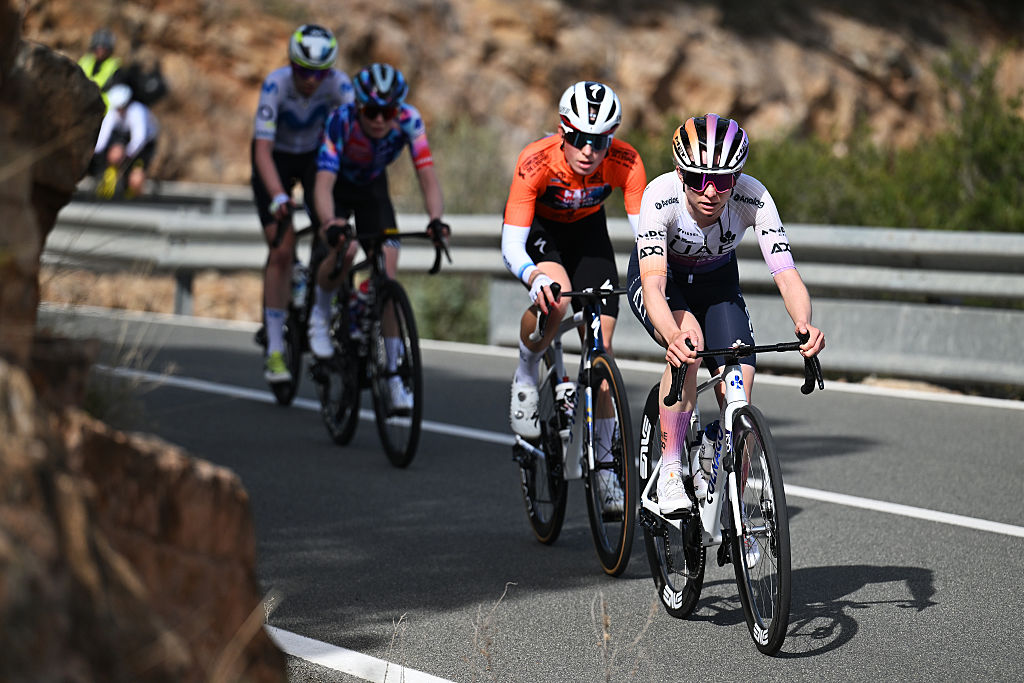Carter Jones looking for his first Grand Tour start in 2016
26-year-old American going into second season on the WorldTour with Giant-Alpecin
The latest race content, interviews, features, reviews and expert buying guides, direct to your inbox!
You are now subscribed
Your newsletter sign-up was successful
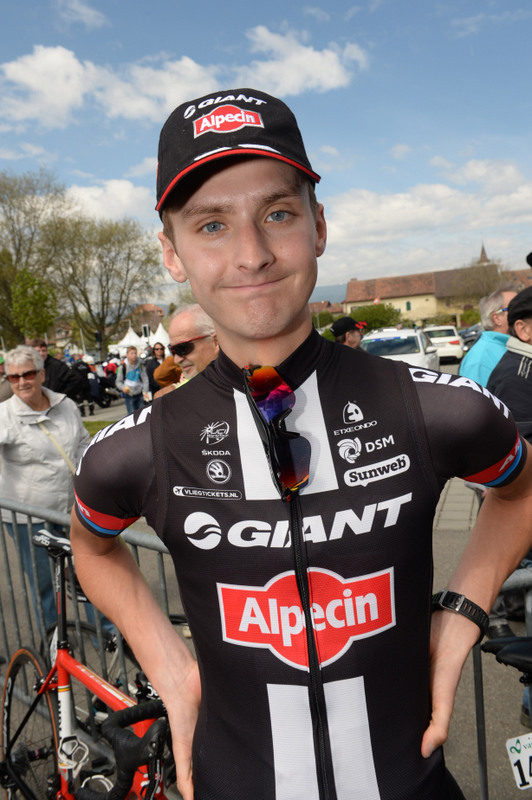
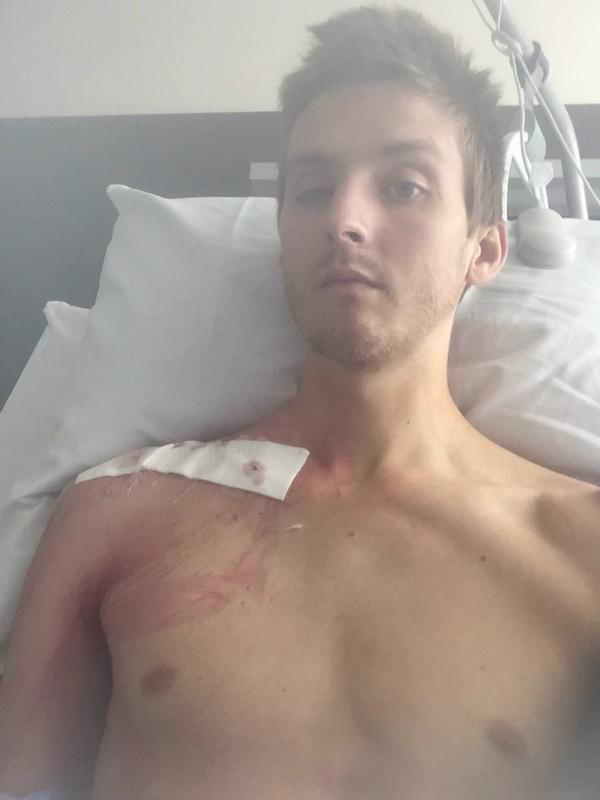
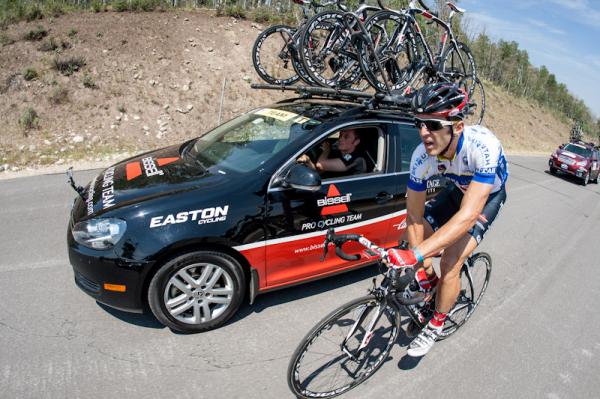
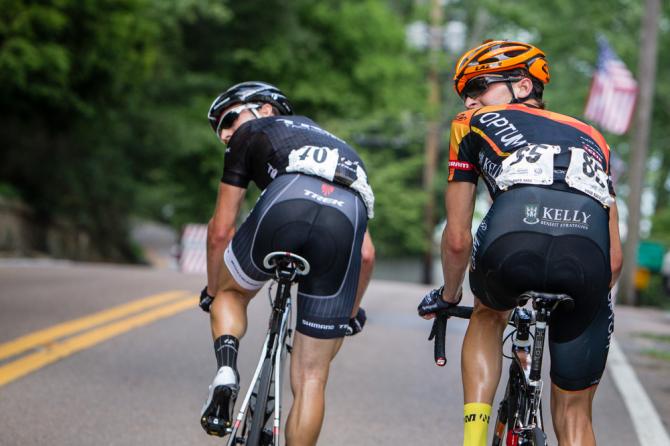
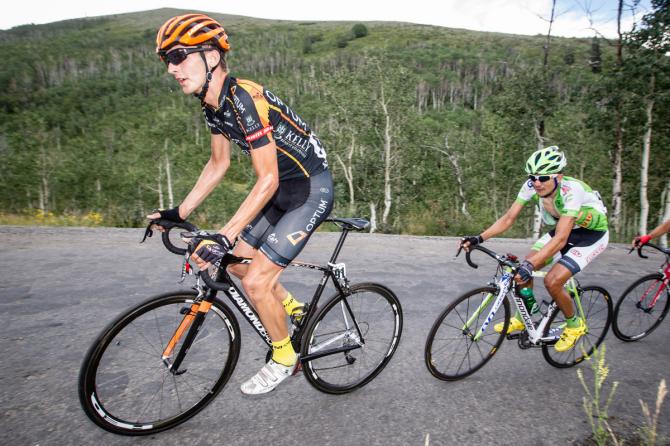
Carter Jones' inaugural season this year in the WorldTour was interrupted after he broke is collarbone in a collision with a car while training in July. The injury cost him a chance to start his first Grand Tour at the Vuelta a Espana, but he hopes to remedy the situation in 2016.
Jones didn't realise when he signed his first WorldTour contract that it would lead to being homeless. But that's what the Giant-Alpecin rider discovered when he returned to the US from his in-season home in Girona, Spain.
The 26-year-old found himself on the move from the east coast to Boulder, Colorado, to his current training spot in Arizona. Couch surfing was not among his expectations in pro cycling, but when you're trying to find your niche in the sport, sacrifices have to be made. Jones joked about the circumstance in a wide-ranging interview with Cyclingnews last week.
Jones moved to Giant-Alpecin this year after a successful 2014 season with Optum, during which he won the Tour of the Gila, finished 11th at the Tour of California, seventh at the Tour of Utah and eighth at the USA Pro Challenge.
Cyclingnews: After your first full season on the WorldTour, what's your biggest takeaway from 2015?
Carter Jones: I would say it's professional cycling, being at such a high level all year round. Not only that, but also just managing the other parts of your life as well as being a professional cyclist. It's figuring out that balance, especially abroad, so you're not kind of stuck in being just a cyclist all the time, but still being in the best form of your entire life.
CN: What's the biggest surprise from this year, living in Europe and racing at the highest level.
The latest race content, interviews, features, reviews and expert buying guides, direct to your inbox!
Jones: I'd say that the two things were that the transition to living in Europe was a lot harder than I thought it would be. Everything is a little bit more stressful. Everything takes one extra step. So you have a problem, and you say, 'Hey, this broke. I need a plumber. How do I find a plumber?' Or I need to buy sheets, so I'd go to Target or whatever sheets store. But here, it's like who do I ask who knows what store to buy sheets at. Those things do add up, especially your first time over here. Now we have an apartment set up, so that should be taken away.
I always wondered why riders struggled with that transition off the bike. The life transition is pretty huge. Everyone tried to tell me, but until you experience it it's hard to put it into words.
I would say in the races, the depth of the field is really, really amazing. Like in California, you go hard, there's a selection made and there's 10 guys. In a WorldTour race it's just as hard, but maybe a little bit harder but not too much. But there's 60 guys, 80 guys. It's really eye opening. There are so many guys at such a high level. Then you start talking to people, like finding out about your teammates' backgrounds, and it's like every single rider was a national champion or a U23 world champion, the absolute best of their age group. It's pretty jaw dropping when you start to realise everyone is so, so good.
CN: When you're in the States, one of the ways you get over to Europe is by getting results and being one of the top riders. But it seems like when younger guys, especially neo-pros go over to Europe they kind of disappear into the peloton for a couple of years. They have to start over and repay all their dues, kind of thing. Is that tough to adjust to? How do you cope with that?
Jones: Yeah, for sure, especially at my age. I think if you came to the WorldTour directly from the U23s it would have been a lot easier. But I made the jump when I was 26. I think that's a bit different. You have to learn all of the races and know the courses and how to race them, know the teams, the riders, there's just so much new stuff that you don't really have any chance to just go out there and race your bike. Some guys are talented enough where it doesn't really matter. It's a different world, you know.
Then there's the physical side of it. In the past couple of years I've had Utah, Colorado and California to really focus on, prepare for and be really good for. Maybe a couple of other Euro events here and there, but not too much. Now those are like any other race, right? What were the biggest races in my calendar are now normal races my calendar.
CN: They're all big races now.
Jones: Exactly. They're all at that level or higher.
CN: So now that you've had that first year and maybe gotten most of the surprises out of the way, what's the biggest thing you want to change going into next season?
Jones: For me, I think being set up and already established in Girona and having a great place to stay there, I think will make a world of difference. I think focusing on being really consistent through the entire season, riding at a solid, solid level the entire year. When I was a leader on Optum or Bissell I was able to really bear down and take control of everything and focus on these events, you know, and be really good for them.
Now I'm just one rider of 28. We have three programs, so the big thing for me is to kind of let go of some of that control and know that when I go to a race I've got a job to do to the best of my ability. If I didn't get to prepare for it perfectly, well that's OK, but no one did. You start to realize that like half the guys in the race didn't know they were going to be there or they were sick last week. You just have to do the best you can. That's part of being professional.
CN: What do you think you did well this season that you want to continue into next season?
Jones: I had kind of a rough start to the year, and then I was getting better every race and I was showing improvement all the way up to the Tour de Suisse, which was the highlight of my year. We had Tom Dumoulin in the jersey, so we had real purpose riding in a WorldTour race, and that was a really cool experience for me.
Then I had a great second half of the season planned, unfortunately I was hit by a car, so that kind of threw everything off. But I think learning to take away little positives from races. Whereas you race in the US, and it's like, 'Oh, yeah, I need to win this or I need to do that.' At the WorldTour level it's more like, 'Well, if I have a good day I make the front group of 40. And instead of seeing that as , 'Oh, I only made the front group of 40. That's terrible.' You know that's a really hard group to make. So I take that away, and the next time maybe do a little bit better, maybe I do a little bit worse. But I think finding little goals for myself to focus on.
The big thing for me in cycling is to keep improving, getting better year after year. So that was a hard transition for me as well. I had no experience to improve upon or set a baseline because I was kind of starting from scratch.
CN: It seems like the make-up of the team is changing a little bit next year with Marcel Kittel gone and more of a focus on stage racing after Tom's successes this year. How do think this will change things for you, if at all?
Jones: It's great for me. To be honest we lost Marcel, which is a bummer, but we still have a very, very solid sprint team with John [Degenkolb] and now Nikias [Arndt] stepping up and Ramon Sinkeldam – I'm sure I'm leaving out someone I'm going to offend – so we still have a very, very competent sprint team, but now we are also building up the GC side of things. That benefits me in terms of that's the direction I'm supposed to develop.
For me, having a purpose and having a goal in those big races like at Tour de Suisse is very motivating. Where as when you go to a race that's maybe not such a high level and without goals, you can kind of get lost. If you're out there and it's like, 'There are five mountains today, make it as far as you can.' Eh. But if it's like, 'Tom has the jersey and Tom needs your help after three mountains or four mountains, you've got to make it the bottom of the last one.' That's a big motivator for me. Or if it's stay with the sprinter and make sure he gets back on so he's there for the finish, those are solid objectives. So having a GC focus and building that side of the team it's going to be more and more important to provide support in the mountains, which is supposed to be my job. So it will be great to have that motivation and have the riders there to work for at a really high level.
CN: What are your personal goals for next season?
Jones: For me next year the biggest goal is finishing a Grand Tour. That's something I really need to do. I don't really want to do but it's something I need to do [laughs] as a rider. I want to get that first one out of the way.
CN: Do you have aims on which Grand Tour? Have you talked about that with the team?
Jones: It's still kind of up in the air. It depends on how I'm riding and what the goals are at what race. But I'm assuming that if I get the opportunity it will be at the Giro or the Vuelta. I was slated for the Vuelta this year, but I was hit by a car and broke my collarbone.
CN: That was in training, right?
Jones: Yeah. It was in July right after my mid-season break. It was a really inopportune time, but it's part of the life, dealing with it. I learned a lot.
CN: Anything else that stood out this year?
Jones: Maybe just the amazing community that Girona has. All the riders who live there during at east part of the season is really incredible. People are in and out and offering support to everyone. They're really willing to help. I'm sure everyone's been there and everyone's struggled. Everyone there has had your problem before you had it. Whatever it may be. Everyone is pretty willing to help, and it's really an amazing place to live, especially for a foreigner abroad. It's impressive.
Growing up in Missoula, Montana, Pat competed in his first bike race in 1985 at Flathead Lake. He studied English and journalism at the University of Oregon and has covered North American cycling extensively since 2009, as well as racing and teams in Europe and South America. Pat currently lives in the US outside of Portland, Oregon, with his imaginary dog Rusty.
